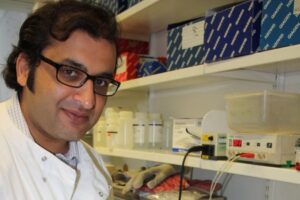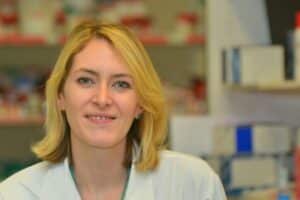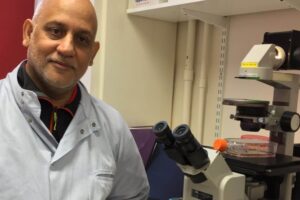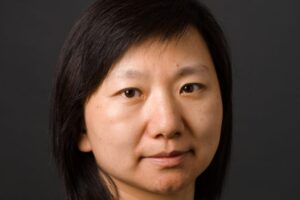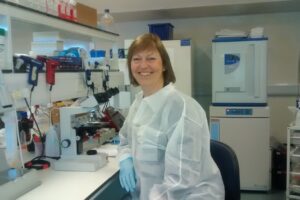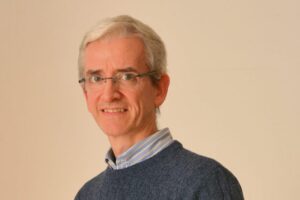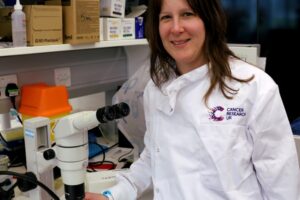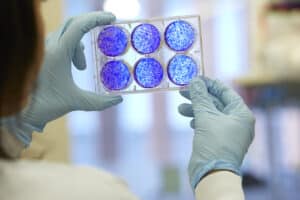Research
Identification of new genetic changes in rhabdomyosarcoma
Rhabdomyosarcoma (RMS) is a childhood cancer that develops in muscle, with 50 new cases every year in the UK. Older children in particular have a poor outlook and we need to improve our understanding of the disease in order to develop new approaches to treatment. Professor Birch is carrying out a detailed investigation of the genetic mutations underlying RMS development, which we hope, ultimately, will direct new, personalised treatment strategies.
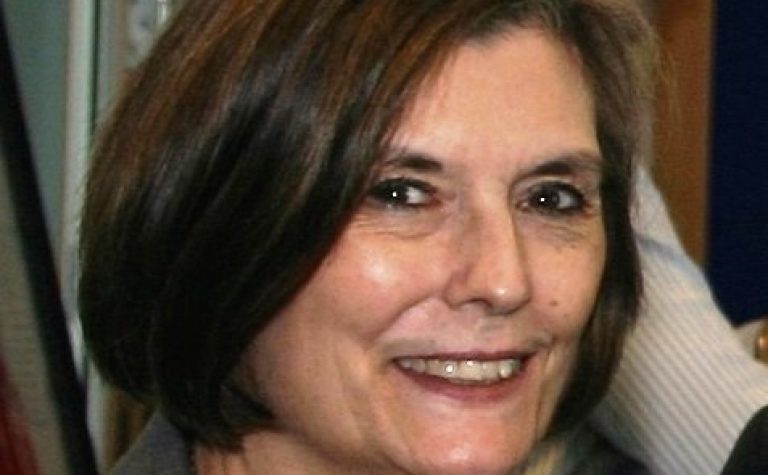
Project Details
- Identification of new genetic changes in rhabdomyosarcoma
- Lead Researcher
- Professor Jill Birch
- Research Centre
- University of Manchester
- City & Institution Postcode
- Manchester M13 9PL
- Start Date
- 1 June 2013
- Project Duration
- 40 months
- Grant Amount
- £96,816
Overview
Rhabdomyosarcoma is a childhood cancer that develops in muscle. There are around 50 new cases a year in the UK. Although there has been some improvement in survival, a third of patients cannot be cured and new insights to the disease, and new approaches to treatment, are desperately needed. The risk of RMS is known to be increased by the presence of certain genetic conditions. These conditions are caused by mutations in genes that are generally important for growth and development before and after birth. Many of these mutations give rise to recognisable birth defects but some defects may be very mild, making them difficult to detect. Some mutations can also cause cancers other than RMS in children and adults. However, in families where the parents and even grandparents of children newly diagnosed with RMS are relatively young, these cancers may not have had time to develop. As a result, the research team believe that some hereditary cases of RMS are not recognised. Whilst there have been previous studies looking for mutations in known genes in RMS patients with recognisable birth defects or a family history of cancer, no previous study has looked for mutations in all children with RMS. The team will select 64 children with RMS on whom they already have stored blood samples and detailed information, collected as part of an earlier study. They will analyse DNA from each blood sample, looking for mutations in genes known to be important for RMS development. Where they do not find mutations in known genes, they will extend the search to look for mutations in all other genes. In the latter, they will also sequence DNA from the parents, to help determine whether what they find may be significant. They will then analyse information on the children concerned, and their families, to see what can be learned about the effects of the mutations.
What difference will this project make?
Rhabdomyosarcoma is an important cause of childhood cancer death. Children’s response to treatment, and likelihood of cure, may be affected by the presence of certain genetic mutations and the findings of this project may therefore direct new, personalised treatment strategies which could save the lives of young patients with rhabdomyosarcoma.
About the Research Team
Professor Jillian Birch, Director of the Paediatric and Familial Cancer Research Group at the University of Manchester, is an international authority on genetic causes of childhood cancer. In this project, Professor Birch is building on a successful collaboration with three investigators with complementary knowledge and expertise. Dr William Newman, an expert on DNA sequencing technology, will conduct the laboratory aspects of the project; Dr Anna Kelsey, an international expert on childhood tumour pathology, will review cancers in patients and families to ensure accurate diagnoses; and Professor Gareth Evans, a world-leader in genetic medicine will assess cases and families for the presence of genetic syndromes.
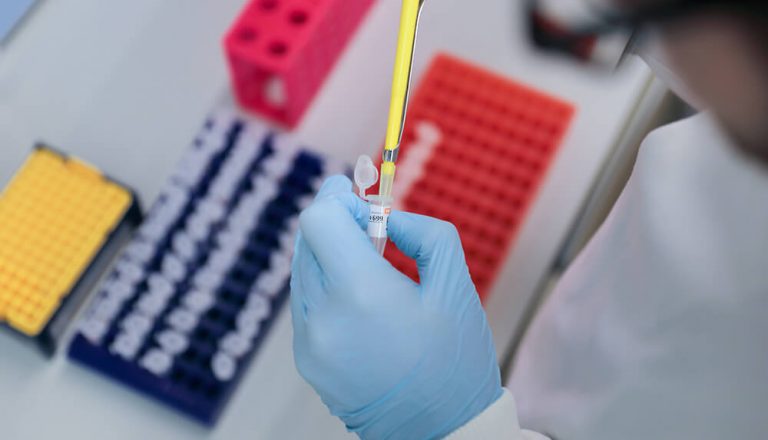
Learn more
Rhabdomyosarcoma (RMS) is a childhood cancer that develops in muscle, with 50 new cases every year in the UK. Older children in particular have a poor outlook and we need to improve our understanding of the disease in order to develop new approaches to treatment. Professor Birch is carrying out a detailed investigation of the genetic mutations underlying RMS development, which we hope, ultimately, will direct new, personalised treatment strategies.
Thank you
This research project on rhabdomyosarcoma has been successfully completed. Your donations allow us to fund ground-breaking research that can improve treatments given to children with cancer. Thank you. Your help allows us to continue to find ways to drive up the chances of survival for children with cancer and reduce the toxic side effects that can affect the rest of their lives.
Other stories
We have lots of information to help you learn more about childhood cancer. From specific cancer types, to treatments and causes.

